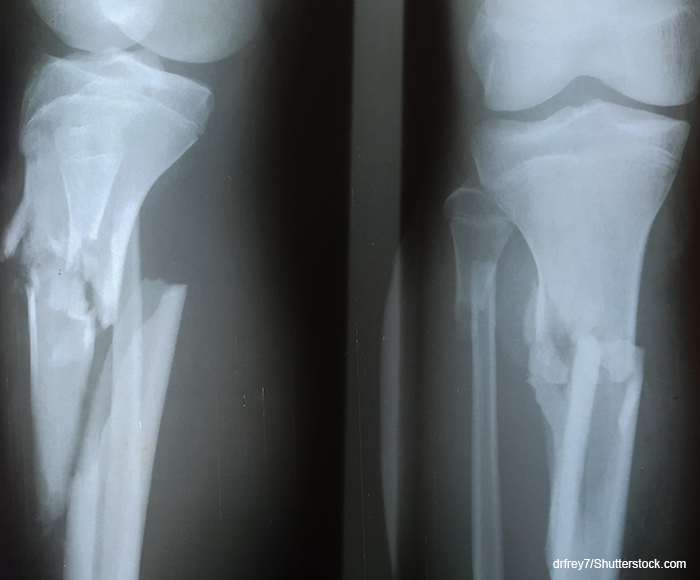Landmark Study Finds Antisepsis Agents Interchangeable in Reducing Infection Risk in Open Fracture Surgeries
October 14, 2022

Robert Zura, MD, Professor and Head of Orthopaedics, and Jessica Rivera, MD, PhD, Associate Professor of Orthopaedics, at LSU Health New Orleans School of Medicine, are also co-authors on the paper.
“I am proud of Dr. Rivera’s and LSU Health New Orleans’ contributions to this landmark study published in such a prestigious journal,” says Dr. Zura.The authors highlight WHO estimates of millions of patients worldwide each year who have surgical site infections. The inherent risk of using fracture fixation in a contaminated or dirty wound is realized in about 10% of open fractures developing surgical site infections. Orthopaedic surgical procedures have the highest infection rate, greater than 20% for severe open tibia shaft fractures.
Previous reviews of general surgery, obstetrics and gynecology trials suggested the superiority of chlorhexidine over iodine. The Aqueous-PREP multiple-period, cluster-randomized, crossover trial included 14 hospitals in Canada, Spain and the United States and 1,638 adults who underwent surgery for an open extremity fracture. It found that the odds of surgical site infection or unplanned fracture-related reoperations did not differ between patients assigned to receive skin antisepsis with aqueous 10% povidone or aqueous 4% chlorhexidine gluconate. The authors wrote, “Our findings contrast the superiority of chlorhexidine in alcohol that has been shown in clean or clean-contaminated surgery.”The authors note their findings could have particular relevance to low- and middle-income countries, where both antiseptic solutions might not be readily available or procuring both products is unnecessarily costly.
They conclude, “Our findings are not only relevant to the management of open fractures but might also be applicable to the surgical treatment of other traumatic wounds.”This study was funded by the US Department of Defense, Canadian Institutes of Health Research, McMaster University Surgical Associates, and the PSI Foundation.
______________________________________________________________________________________________________________ LSU Health Sciences Center New Orleans (LSU Health New Orleans) educates Louisiana's health care professionals. The state's health sciences university leader, LSU Health New Orleans includes a School of Medicine with campuses in Baton Rouge and Lafayette, the state's only School of Dentistry, Louisiana's only public School of Public Health, and Schools of Allied Health Professions, Nursing, and Graduate Studies. LSU Health New Orleans faculty take care of patients in public and private hospitals and clinics throughout the region. In the vanguard of biosciences research, the LSU Health New Orleans research enterprise generates jobs and enormous annual economic impact. LSU Health New Orleans faculty have made lifesaving discoveries and continue to work to prevent, advance treatment or cure disease. To learn more, visit http://www.lsuhsc.edu, http://www.twitter.com/LSUHealthNO, or http://www.facebook.com/LSUHSC.
